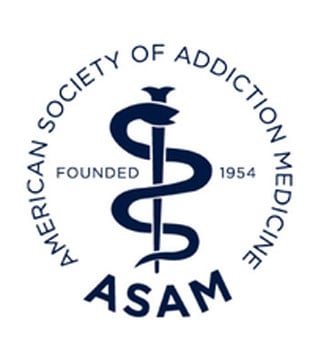Eye Movement Desensitization and Reprocessing (EMDR)

What Is Eye Movement Desensitization and Reprocessing (EMDR)?
Eye Movement Desensitization and Reprocessing (EMDR) is a form of psychotherapy that is often a recommended treatment for those who struggle with post-traumatic stress disorder (PTSD).
This treatment modality involves moving your eyes a specific way while you process or recount past traumatic experiences. The goal of EMDR is to help you heal from past trauma or other distressing life experiences.
TREATMENT MODALITIES
How Does EMDR Work?
EMDR uses a structured eight-phase approach to help change the way a traumatic memory is stored in the brain, reducing and eliminating the problematic symptoms:
- Phase 1: History and treatment plan
Share a comprehensive history and gather information about the traumatic experience. - Phase 2: Preparation
Learn EMDR techniques (e.g., coping, stabilization, and regulation skills) to help process difficult emotions. - Phase 3: Assessment
Identify emotions, beliefs, associated negative connotations, and bodily sensations related to the traumatic memory. - Phase 4: Desensitization
Learn and perform eye movements and tapping skills to resolve a charged memory, belief, or trigger. - Phase 5: Installation
Use bilateral stimulation to replace negative cognition with positive cognition. - Phase 6: Body scan
Assess and process any residual somatic symptoms. - Phase 7: Debriefing and closure
Review coping, self-regulation, and self-care skills. - Phase 8: Re-Evaluation
Review progress and identify new needs.
EMDR for Mental Health Disorders
EMDR is a powerful therapeutic approach designed to alleviate the distress associated with traumatic memories and a range of mental health disorders.
By integrating aspects of cognitive therapy with bilateral stimulation, EMDR helps individuals process and reframe their experiences, leading to significant emotional relief.
Key Benefits of EMDR for Mental Health
- Trauma Processing
EMDR specifically targets unresolved trauma, helping individuals safely confront and process traumatic memories. This can lead to a reduction in PTSD, anxiety, and depression symptoms. - Reduction of Anxiety and Depression
By addressing the root causes of emotional distress, EMDR can significantly decrease anxiety and alleviate symptoms of depression, promoting a more balanced emotional state. - Improved Coping Skills
EMDR helps clients develop healthier coping mechanisms and resilience, making it easier to manage stressors and triggers in everyday life. - Enhanced Self-Perception
As clients work through past traumas, they often experience a shift in self-perception, moving from feelings of shame or inadequacy to greater self-acceptance and confidence. - Holistic Healing
EMDR recognizes the interconnectedness of mind and body, fostering a sense of holistic healing that can lead to improved overall well-being.
EMDR is a structured and empathetic approach that empowers people to reclaim their lives from the grips of mental health disorders, paving the way for meaningful, lasting change and a brighter future.
If you’re ready to explore how EMDR can support your mental health journey, contact our admissions team today at 561-841-1033.
EMDR for Addiction
EMDR is a powerful therapeutic tool that has been proven to help individuals struggling with addiction by addressing the underlying trauma that often fuels substance use. Addiction frequently stems from unresolved emotional pain, and EMDR works to process these traumatic memories, allowing individuals to heal and break free from harmful patterns. By using guided eye movements, EMDR helps the brain reprocess traumatic experiences, reducing the emotional charge and making it easier to cope without turning to substances.
For those in recovery, EMDR provides a unique path to healing by targeting the root causes of addiction rather than just the symptoms. It’s especially effective for people who have experienced significant stress or trauma, as it helps rewire the brain’s response to those memories. This transformative approach can lead to a more complete, lasting recovery, empowering individuals to rebuild their lives with a sense of calm, control, and resilience. At its core, EMDR helps to restore balance and supports people on their journey to long-term wellness.
The Role of Trauma in Addiction
Individuals with PTSD from experiences like bullying or emotional abuse often face a higher risk of developing an addiction. They may turn to alcohol or drugs to numb their pain, manage PTSD symptoms, or escape troubling thoughts.
The Benefits of EMDR for Substance Abuse
While EMDR was initially developed to help people with PTSD, it’s also proven effective for those struggling with addiction. EMDR helps people by:
- Addressing underlying trauma.
- Reducing cravings.
- Improving emotional regulation.
- Enhancing coping skills.
- Improving overall well-being.
Our EMDR Approach
At Hanley Center, we understand that facing mental health challenges and addiction can feel overwhelming—or even frightening. Our EMDR program is designed to help you or your loved one address the root causes of addiction by helping you process and heal from traumatic experiences.
We use evidence-based EMDR techniques and a personalized approach to help alleviate the emotional pain and distress that often leads to substance use.

Start Your Journey to Recovery Now
Achieving emotional balance and peace can be especially challenging when complicated by addiction and mental health issues. Our dedicated and compassionate team is ready to guide you on your recovery journey and provide tools to help encourage healing and resilience.
Contact us today to schedule a consultation and discover how EMDR can empower you to create a healthier, more fulfilling future.
Hanley Center: Most Insurance Accepted
Address: 933 45th Street
West Palm Beach, FL 33407




